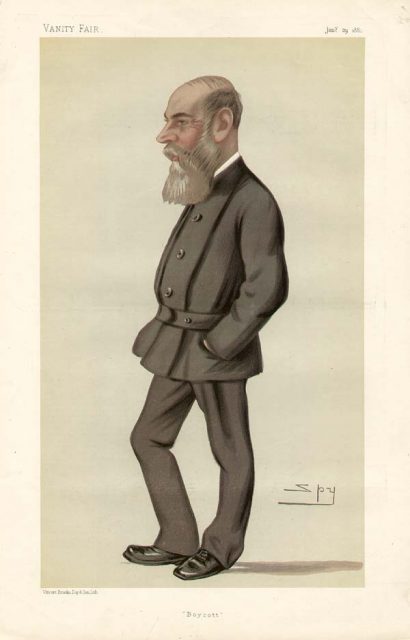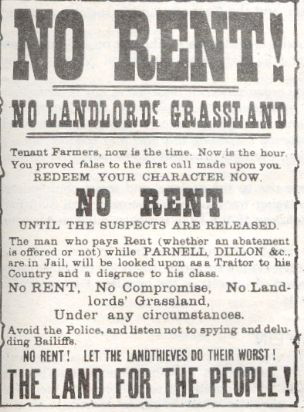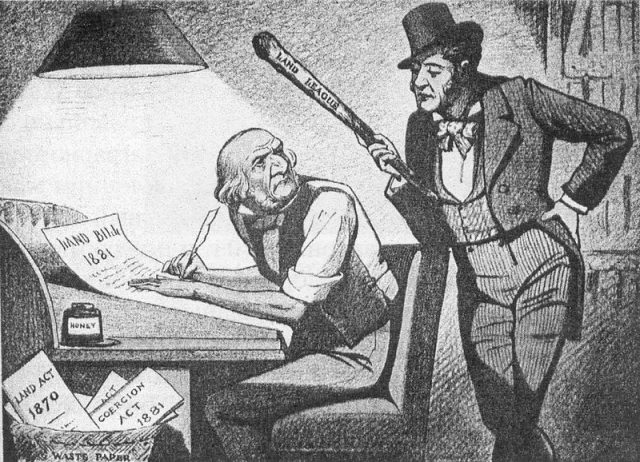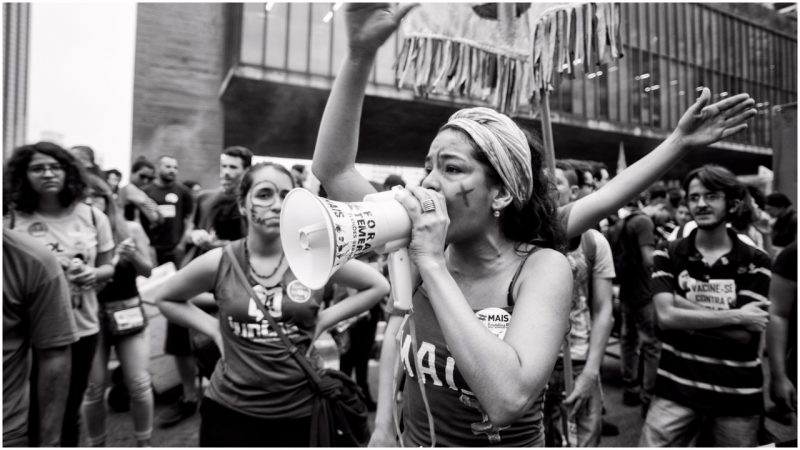Have you ever asked for a “biro” when you needed a ball pen or some “Kleenex” when you were actually in need of a tissue? Well, you were unintentionally referring to “eponyms”—words that are used when something is named after a person or other proper noun. In fact, “biro” derives from the last name of the famous Hungarian inventor of ballpoint pens, László József Bíró, while “Kleenex” is frequently used because it is one of the most famous brands of absorbent disposable paper tissues.
Some of the other most popular daily used eponyms are words such as “sandwich,” attributed to John Montagu (4th Earl of Sandwich), “panic” after Pan (Greek god), and “nicotine” after French diplomat Jean Nicot. But among the numerous other eponyms, there is one with an especially intriguing background and historical significance—the eponym “boycott,” whose father is the British estate manager Charles C. Boycott.
The definition of ‘boycott’ is of someone refusing to do certain business or withdraw from relations (commercial or social) with a country, person, or organization as punishment or protest. The term was popularized by Charles Stewart Parnell during the Iand agitation of 1880 to protest high rents and evictions. Parnell constructed a code of conduct that was followed by Irish tenants who efficiently blackballed the land agent named Boycott.

In 1880, Captain Charles Cunningham Boycott, a retired officer who became a land agent for the estates of the third Earl of Erne at Connaught in County Mayo, Ireland, threw out of residence some destitute tenant farmers who couldn’t afford their rent. That same year had been a bad one for the harvest, so they were left with hardly any money. The Land League, a union of tenants which aimed to return landownership to farmers, addressed Charles Boycott and asked him to lower the rent, but he refused.
The Land League was formed in 1879, when bad harvest caused famine, and was inspired by the great Irish leader of the Parliamentary Party, Charles Stewart Parnell. Parnell warned Boycott that he must reduce rents because the tenants didn’t find them affordable. Boycott turned a blind eye and considered the issue irrelevant, so Parnell decided to set a precedent with Boycott, by morally isolating him and refusing to have any dealings with him. Parnell’s non-violent strategy encouraged tenants to ostracize any landlord who refused to reduce rent prices or any tenant who took over a farm of tenants who were forced out. These “personas non gratas” were sent to a “moral coventry” and left alone.

dating from the 1880s
The plan worked, and soon Boycott found himself completely alone and abashed. His servants and farmlands left him and he was also deprived of mail delivery and laundry service. When he went downtown to buy goods, the door was shut in his face. People ridiculed him and tore down his fences, causing him to lose his cattle. Soon after, life became intolerable for Boycott and he was forced to hire 50 laborers from Cavan and Monaghan to harvest his crops as well as soldiers to defend himself and his family from the peaceful protests.
The Boycotts were forced to spend around $13,000 for crops that were estimated at $600. Finally, the Boycott case became so infamous that he had to give up and escape to England. So, ironically as it may seem, Boycott caused the first boycott.

People named the aforementioned action a “boycott” and due to its powerful significance, it spread very fast, especially among labor unions whose members regarded themselves as unfairly treated. Moreover, the boycott was distinguished by a primary boycott which suggested a refusal to do business with the employer and a secondary boycott which meant that other people were influenced to join the resistance.
Read another story: Enough, already. The Skylab mutiny was the first and only labor strike in space
The story of Boycott was adapted into a film in 1947, named Captain Boycott, starring Stewart Granger. The importance of this notorious figure is reflected in the common use of the eponym whenever justice must be served.
